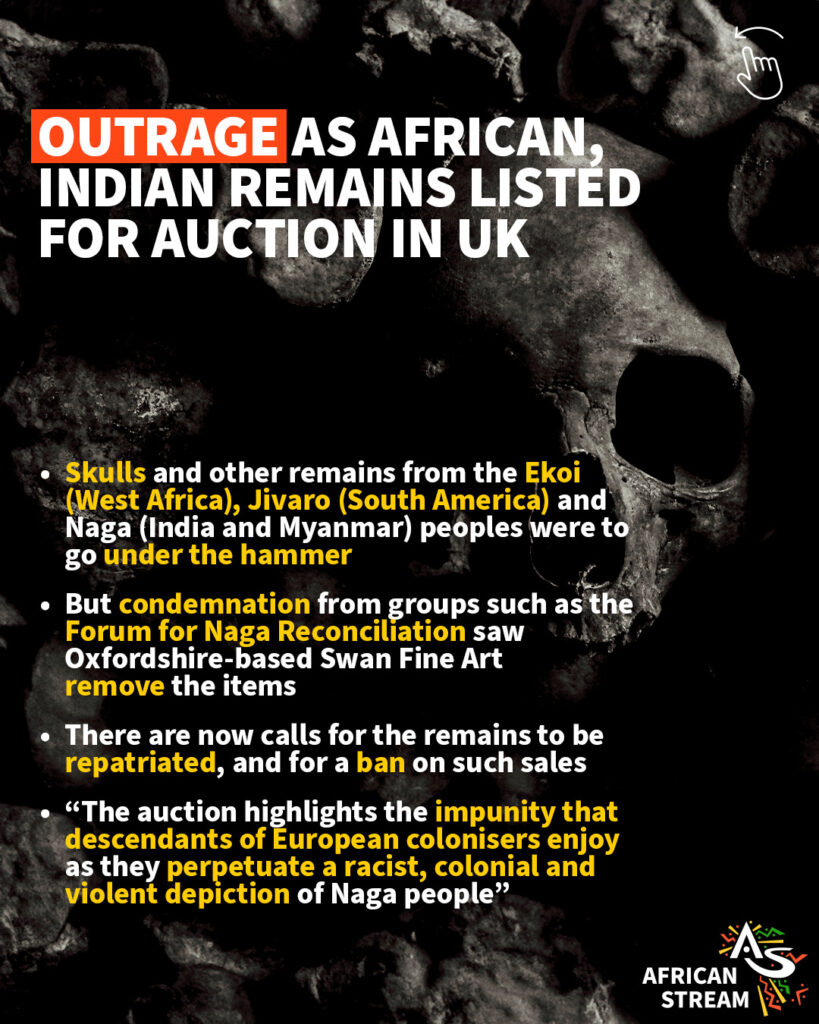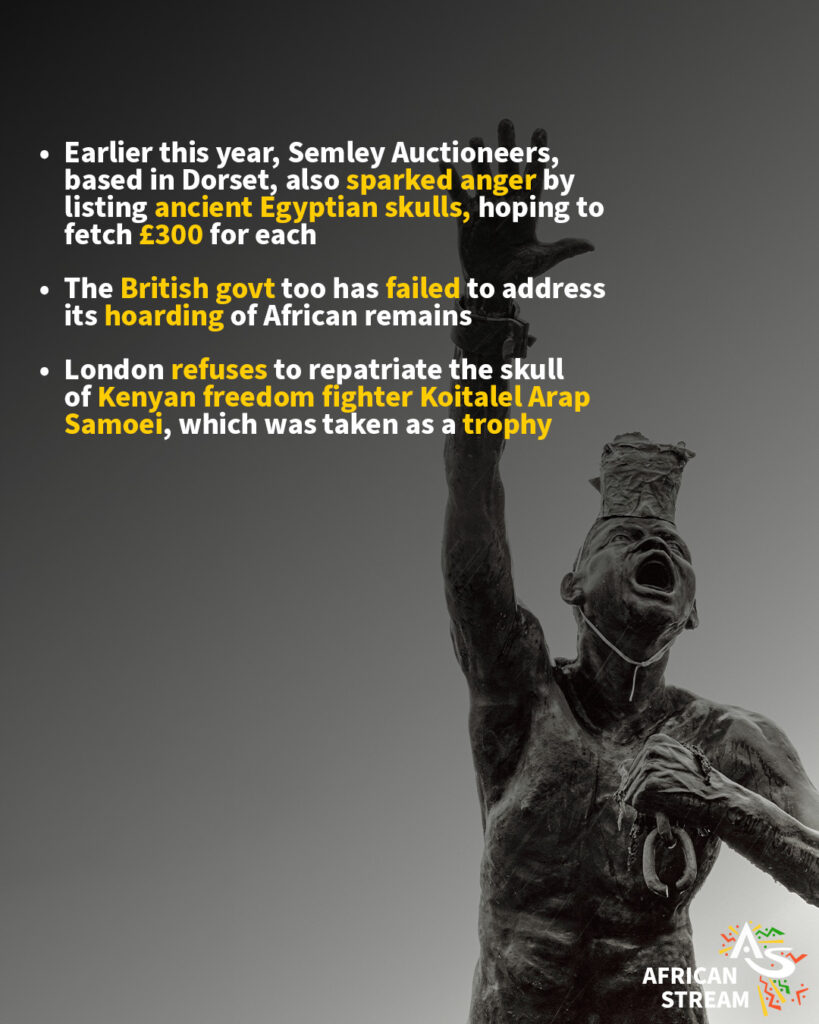Skulls and other human remains from the Ekoi (West Africa), Jivaro (South America) and Naga (India and Myanmar) peoples were recently listed for auction by Swan Fine Art in Oxfordshire. The sale sparked outrage, with groups such as the Forum for Naga Reconciliation (FNR) leading calls for the removal of these items. In response to the condemnation, the auction house took down the remains, while some activists are pushing for the them to be repatriated to their respective communities.
Critics argue that the auction reflects the lingering legacy of colonialism, as descendants of European colonisers continue to profit from the exploitation of indigenous peoples. A spokesperson from the FNR stated that the sale perpetuates “a racist, colonial and violent depiction” of the Naga people, highlighting the impunity with which such actions are carried out. Similar incidents have occurred in the UK before – for example, Semley Auctioneers in Dorset selling ancient Egyptian skulls – underscoring the ongoing dehumanisation of non-European cultures.
Further compounding this issue, the British government has been criticised for failing to address its role in these practices. The family of Kenyan freedom fighter Koitalel Arap Samoei, whose skull was taken to the UK as a trophy, has faced numerous obstacles in their efforts to have it repatriated. This resistance reflects a broader unwillingness to confront the country’s colonial past and the enduring impact it has on indigenous communities.
